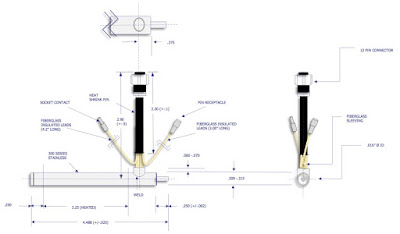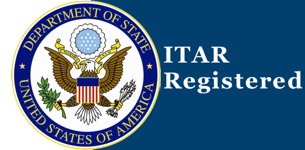The
International Traffic in Arms Regulations, known as ITAR, are export control regulations run by the US Department of State.
BCE is now ITAR registered. So what does this mean?
Understanding and complying with The International Traffic in Arms Regulations (ITAR) is necessary for companies in the supply chain to operate efficiently and expand business opportunities world-wide.
The U.S. Government requires all companies who manufacture, export, or broker defense related articles, defense related services, or technical data to be ITAR compliant. In as much, compliance with the continuously evolving export regulations is essential for any company that does business with manufacturers or contractors who compete in the global marketplace.
ITAR is designed to help ensure that defense related technology does not end up in enemy hands. ITAR relates directly to defense-related applications. Items specifically designed or otherwise intended for military end-use are listed on the United States Munitions List (USML) and are therefore controlled by International Traffic in Arms Regulations (ITAR). The program is administered by the
Directorate of Defense Trade Controls (DDTC) at the State Department.
Products, services, and information all fall under ITAR regulations, with the most notable items being “Significant Military Equipment (SME)”. These are the most controlled. Examples are tanks, ships, helicopters, and explosives. However, there are many other "not so obvious" items listed on the USML, or used in the supply chain, and providers of these articles must follow ITAR as well.
To be ITAR COMPLIANT, a company needs to register with the Directorate of Defense Trade Controls and fully understand what is required for compliance. The company must understand and abide by the ITAR as it applies to any of their United States Munitions List related goods or services, and the company certifies that they comply with ITAR when they providing materials or services to a USML prime exporter.
For more information,
visit The International Traffic in Arms Regulations website.

